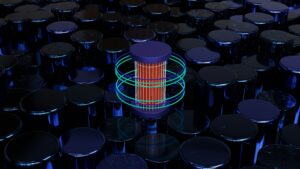
Por Contxto
May 9, 2024
– Neuralink’s debut human implant showed reduced data transmission due to retracting threads, raising concerns about long-term functionality.
– The patient, a quadriplegic since 2016, demonstrated the ability to control a computer cursor and play chess using the implant.
– Neuralink plans to implant two more patients pending a safety review, with a goal to implant 10 people this year.
Neuralink, Elon Musk’s neurotechnology company, recently faced a hiccup with its first human brain-chip implant, which demonstrated reduced data capture capacity due to some implant threads retracting. Despite this, the patient involved, Arbaugh, a quadriplegic since a 2016 accident, successfully controlled a computer cursor and played chess, showcasing the implant’s potential during a live demonstration.
This issue was highlighted after The Wall Street Journal inquired, leading to Neuralink’s disclosure of the problem via their blog. The company investigated potential causes, including pneumocephalus—air trapped inside the skull post-surgery. Although this did not pose a direct safety risk to Arbaugh, the possibility of removing the implant was considered. In response, Neuralink modified algorithms to improve the implant’s performance, managing to restore data transmission rates to initial levels.
Looking forward, Neuralink has informed the FDA of potential fixes and plans to extend the technology to more patients after a comprehensive safety review. The company’s goal is to deploy this technology to 10 individuals within the year, aiming to advance the capabilities of brain-computer interfaces significantly.

December 10, 2025
Por Contxto
March 20, 2024
Por Contxto
February 16, 2024